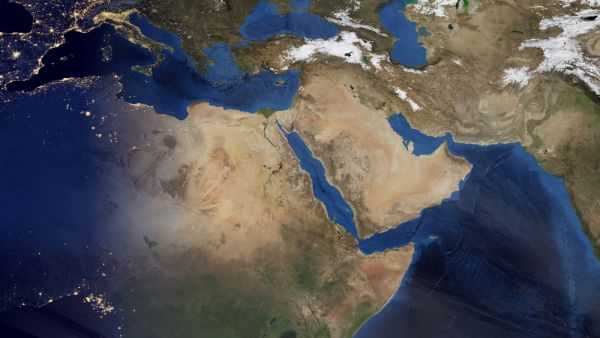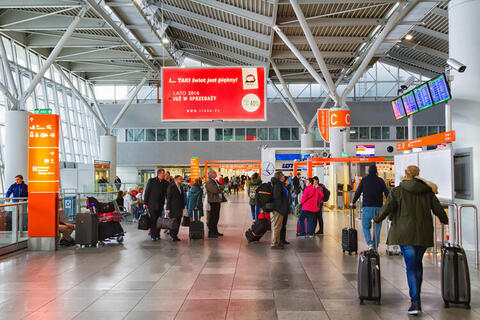If you’re an American planning your first visit to the Middle East there are a lot of aspects to take into consideration. But don’t worry if you’re not familiar with the region. The move isn’t as intimidating as you might think, and our tips for Americans newly visiting the Middle East will help you along the way.
Perception vs Reality

The first thing to consider on this list of tips for Americans newly visiting the Middle East is that “the Middle East” is a very blanket statement. It refers to a general region but no two Middle Eastern countries are the same.
They each have their own differences, cultures and customs. If you have never been to the region and your perception of it is largely based off media, there are likely a few stereotypes you’ll need to shake off.
For example, the idea that every country in the Middle East is dangerous and plagued by war or extremism is far from the truth. There are certainly areas of instability, but others are as safe as anywhere else in the world.
But whether you’re headed to Jordan, Qatar or elsewhere, just remember not to let stereotypes or preconceptions determine your opinion about an entire country or its people.
The best way to learn what a place is truly like is to go see it for yourself.
Cultural Differences

Speaking of different cultures in this list of tips for Americans newly visiting the Middle East, there are a few things you should be aware of.
The first is around drinking. Drinking alcohol is pretty normal and accepted in countries like Lebanon and Jordan, but it is definitely less so in Gulf states like Oman and Saudi Arabia.
Be aware of the drinking laws wherever you’re staying, and know that a country that has Sharia law is not going to have the same drinking culture that you’re accustomed to in the US.
In that same vein, you should also keep in mind differences surrounding religion. It would be extremely rude or potentially punishable by law to insult the Islamic religion while staying in a Muslim country.
Be conscious of where you are and who you’re interacting with. In religiously conservative areas it’s generally frowned upon for unmarried men and women to spend time together alone.
Keep PDA to a minimum if you’re with your significant other and definitely avoid kissing in public.
If you’re a woman, the sad truth is that you’ll have to be even more careful than you would in the US. Avoid wearing revealing clothing as you’ll be standing out already by just being a woman foreigner.
And if you’re not heterosexual, I’m sure you’re already aware of the considerations you’ll have to keep in mind.
Food and Water

Once you understand these cultural differences and the above tips for Americans newly visiting the Middle East, you can focus more on enjoying your time in the region and experiencing daily life.
Every country will have its own local delicacies, but delicious lamb kebabs and shawarma are universal in the Arab world. Even if you’ve tried these in the US you should try them again when you arrive.
Chances are high you’ll find something that’s better quality, better tasting and cheaper than what you’re used to in the US.
Food in the region is also generally more affordable and you’re not expected to tip. In Jordan for example, getting a full-course meal at a decent restaurant might only cost you $12 USD, where its equivalent in the US would be more like $25 USD.
And the same goes for groceries. You can expect to spend about half as much money for the same amount of food at a grocery store.
Just make sure you get your produce tagged. In the US the cashiers will weigh and price your produce during checkout, but this is rarely the case in the Middle East.
You’ll need to bring your bagged produce to a separate station where someone will put the price tag on it. If you show up to checkout without the tags, you’ll definitely annoy your cashier and anyone else in line.
Oh, and expect to see bottled water everywhere. The tap water will not be safe to drink or even cook with depending on where you are.
When you’re at a restaurant, they’ll usually give bottles of water instead of a pitcher like in the US.
Daily Life Logistics

Next up on this list of tips for Americans newly visiting the Middle East is daily life logistics.
Planning on driving during your time abroad? Good news. Gas prices will be a fraction of what you’re used to.
In Oman, for example, it might only be $10 USD to fill up your car compared to the usual $30 to $40 in the US.
Want to get your phone working? More good news. You can get a regional SIM card and data for your phone for less than $20 USD in most places. With no insane phone monopoly running the show, there are no insane US data rates or contracts.
And one last tip for general daily life, know that the culture around where you sit when taking a taxi or Uber is different.
If you’re a man, you sit up front in the passenger seat. If you sit in the back it would be rude and come across as you treating the driver like a chauffeur.
If you’re a woman, you sit in the back seat. If you sat up front it would come across as strange and the driver might even take it as flirting.
But aside from the general tips listed above, there a lot of things you’ll have to learn through experience or by asking the people you meet.
Just keep an open mind, remember to ask for help if you ever need it and enjoy your first time visiting the Middle East.









